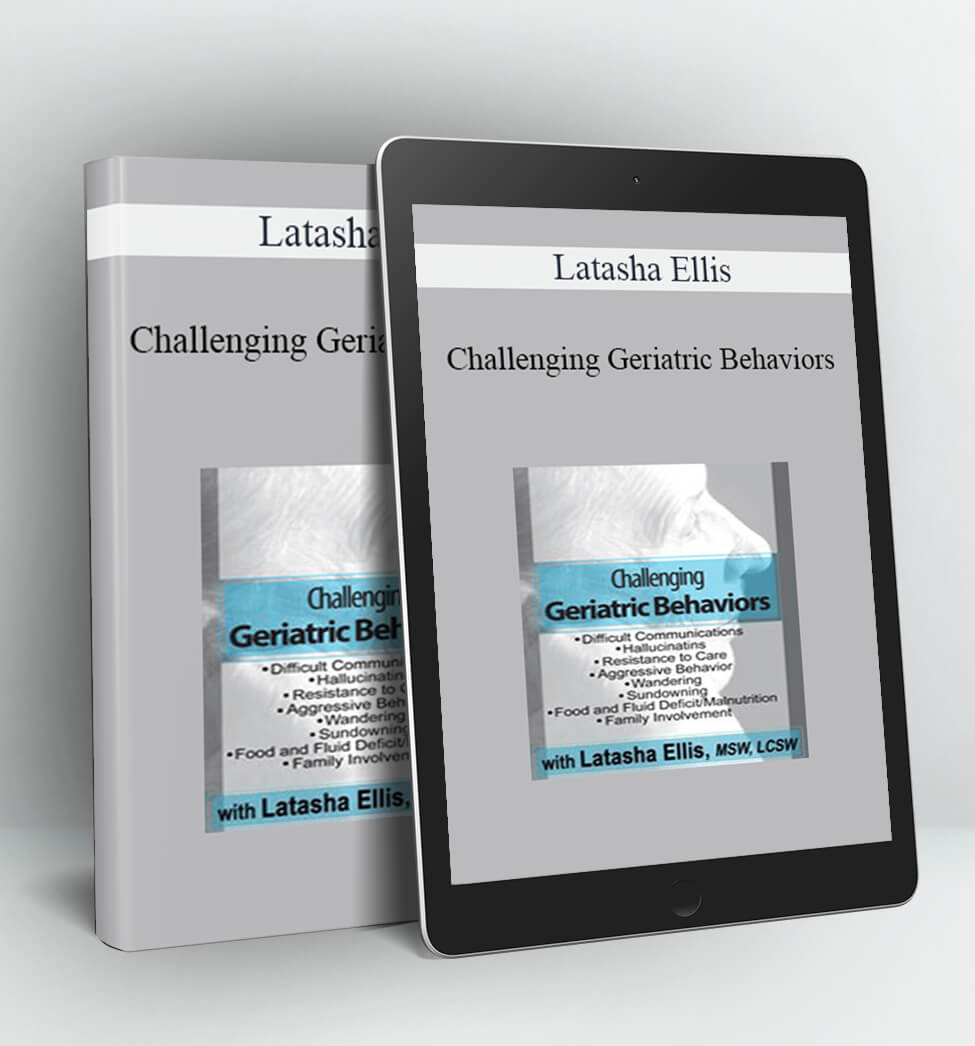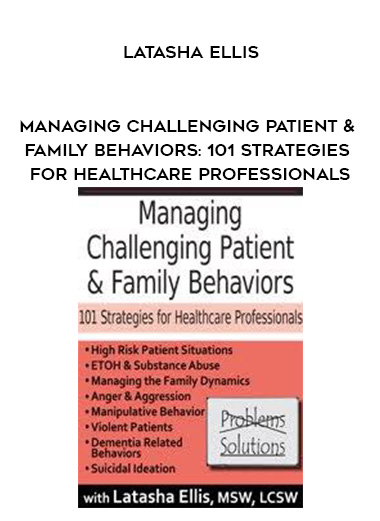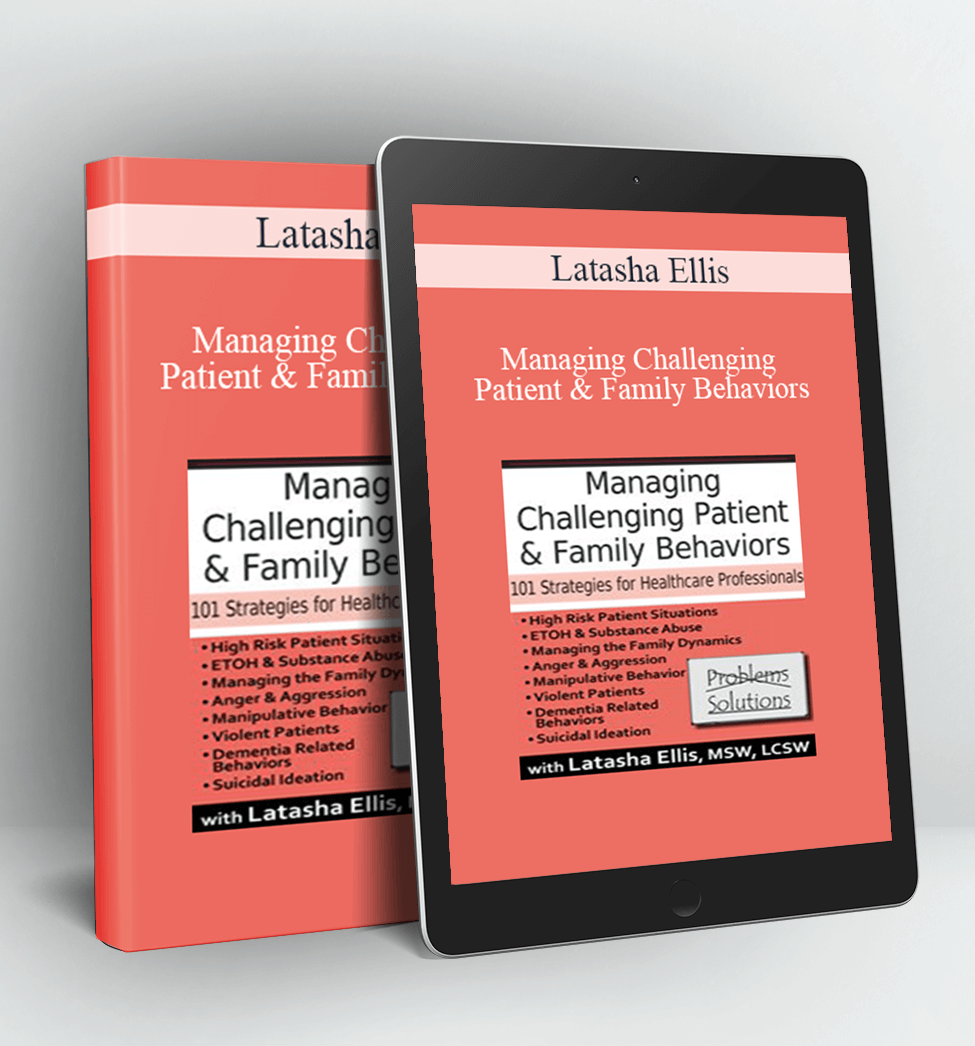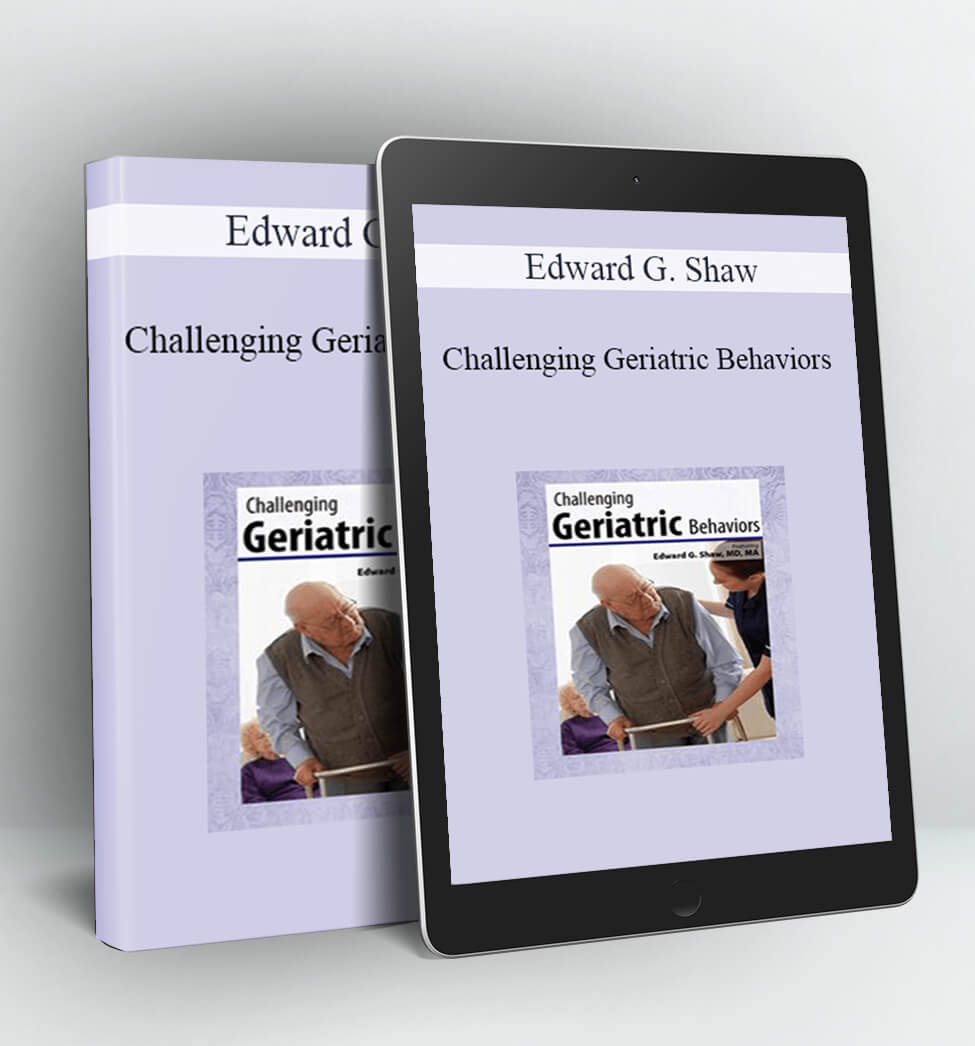Challenging Geriatric Behaviors – Latasha Ellis
- Faculty:
- Latasha Ellis
- Duration:
- Full Day
- Format:
- Audio and Video
- Copyright:
- Sep 14, 2016
Description
- Difficult Communications
- Hallucinations
- Resistance to Care
- Aggressive Behavior
- Wandering
- Sundowning
- Food and Fluid Deficit/Malnutrition
- Family Involvement
Caregivers find many older adult behaviors to be challenging. Dementia and delirium are the most frequent contributing factors. Knowing what to expect and what to do related to specific behaviors can decrease frustration and increase satisfaction for everyone involved. A framework for rethinking challenging behaviors provides guidance for choosing management strategies.
Assessment and management techniques are based on theory and evidence. Through interactive discussion, clinical examples, and videos, this program focuses on day-to-day strategies to prevent and/or manage challenging geriatric behaviors.
Handouts
| Webcast Manual (0.84 MB) | 45 Pages | Available after Purchase | |
| Instructions for ASHA Credit – SELF STUDY ONLY – 09/14/16 (0.03 MB) | Available after Purchase | ||
| ASHA Participant Form – SELF STUDY ONLY – 09/14/16 (1.54 MB) | Available after Purchase |
Outline
Identifying Baseline
- Objective Measurements
- Risk Factors for Escalation of Challenging Behaviors
- Influence of Gender, Cultural and Societal Factors
- Environmental and Interactional Considerations
- Lifelong Patterns and Preferences
Differentiating Among Dementia, Delirium, and Depression
- Diagnostic Criteria
- Signs/Symptoms
- Management
Alzheimer’s Disease: Assessment and Management
- Various Types of Dementia
- Progression and Stages: Retrogenesis
- Pharmacological Treatment Options
- Problems Commonly Associated with Alzheimer’s Disease: Difficult Communication, Hallucinations, Resistance/Aggression, Wandering, Sundowning, Malnutrition
- Interventions to Provide a Positive Experience
Difficult Communications and Hallucinations
- Contributing Factors
- Verbal and Non-verbal Techniques
- Therapeutic Use of Self
- Reorientation, Reminiscence
Validation
- Problem Solving
- Entering Their Reality
Resistance to Care
- Routine Hygiene Needs
- Reasons for Resistance
- Successful Techniques
Physically Aggressive Behaviors
- Reverse Developmental Behavior
- Behaviors as a Way to Communicate
- Identify the Problem/Trigger
- Environmental and Interactional Factors
- Causes of Escalation
Wandering and Sundowning
- Contributing Factors
- Assessment
- Exercise and Activity
- Environmental Management
- Interactional Management
Food and Fluid Deficit/Malnutrition
- Reasons Why They May Not Eat
- Ways to Promote Nutritional Intake
- Tips for Persons Who Need Feeding Assistance
- The Eating Environment
- End of Life
The Family Caregiver as Part of the Team
- Family Dynamics: Role Change
- Emotions Expressed During Caregiving: Positive and Negative
- Positive Communication Among Staff, Family, and Older Adult
- Assisting the Caregiver to Meet the Needs of the Care Recipient
- Helpful Resources
- Ways to Help Reduce Stress for the Caregiver
Faculty
Latasha Ellis, MSW, LCSW Related seminars and products: 2
Latasha Ellis, MSW, LCSW, is a psychotherapist and consultant, having served patients across diverse clinical settings, including: community mental health clinics, inpatient and outpatient medical facilities, the state of MD Department of Corrections, and the VA School for the Deaf, Blind and Multi-disabled. She is presently the owner and CEO of AHSAT Counseling and Consulting, PLLC.
Through her current private practice, Latasha works closely with area hospitals for the provision of psychological services to cardiac, pulmonary, and oncology patients. She is also a certified clinical supervisor with the National Association of Social Workers, North Carolina Chapter.
In addition to her clinical experience, Latasha provides trainings throughout the country drawing from her expertise on challenging behaviors and enjoys delivering corporate workshops/ seminars on a variety of topics pertinent to workplace challenges as well. She is a certified trainer of Managing Aggressive Behaviors (MAB), through The University of Oklahoma OUTREACH; a program that emphasizes prevention, non-physical intervention strategies, and non-pain producing physical intervention techniques.
Latasha’s passion for the field of mental health and behavior management is exemplified by her role as Field Instructor for various universities. She has trained students at the University of North Carolina-Chapel Hill, University of North Dakota, Old Dominion University, and Norfolk State University.
Latasha holds a Bachelors of Social Work (BSW) degree from Morgan State University and a Master of Social Work (MSW) degree from the University of Maryland at Baltimore. Her MSW degree holds a concentration in Clinical Social Work with a primary specialization in Mental Health and a secondary specialization in Management and Community Organization. Latasha is currently writing her dissertation in pursuit of her PhD.
Speaker Disclosures:
Financial: Latasha Ellis maintains a private practice. She receives a speaking honorarium from PESI, Inc.
Non-Financial: Latasha Ellis has no relevant nonfinancial relationships to disclose.
Access Download Challenging Geriatric Behaviors – Latasha Ellis right now!
Delivery Method:
After your purchase, you’ll get access to the downloads page. Here, you can download all the files associated with your order.
Downloads are available once your payment is confirmed, we’ll also send you a download notification email separate from any transaction notification emails you receive from Vinlearn.









